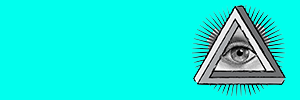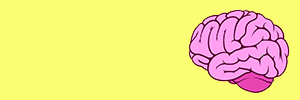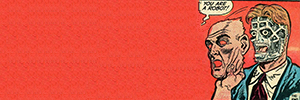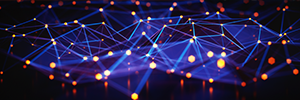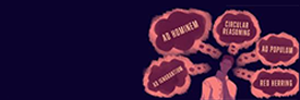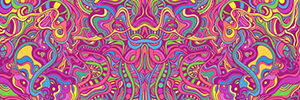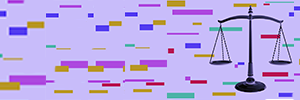|
|
| (99 intermediate revisions by the same user not shown) |
| Line 2: |
Line 2: |
| {{Main Page - new design/header}} | | {{Main Page - new design/header}} |
| {{Main Page - new design/navigation}} | | {{Main Page - new design/navigation}} |
| <div id="home-content"> | | <br /><div style='text-align: center;'>'''This Open-Source Wiki is upheld by an anonymous group of professional scientific moderators. As a group, we induce [[Pivotal Mental States|neuroplastic states]], review [[Sci-hub|open scientific literature]] and edit this Wiki. We offer a bounty for any errors you might find, to claim, contact [https://thetransparent.company/contact/ The Transparent Company].''' </div> |
| ''This Open-Source Wiki is being maintained by an anonymous group of verified professional scientific moderators. We induce [[Pivotal Mental States|neuroplastic states]] to create new ways of thinking to better interpret [[Sci-hub]] data. We offer a bounty for any errors you might find, to claim, post on our [https://www.reddit.com/r/burnzero/comments/vur78q/bounty_find_a_factual_error_on_burnzerocom_get_10/ anonymous subreddit]. Click the link if you would like to [https://us20.list-manage.com/survey?u=9746b6861fcf7d718e1039787&id=ab52de094d&attribution=false apply to become part of the editorial team] or be notified of any updates [[Mailing list|via our mailing list]].'' | |
|
| |
|
| <hr /> | | <hr /> |
|
| |
|
| It's [[Ecological Crisis is difficult to see|difficult to see]], but [[we]] are amidst the greatest [[Ecological crisis|crisis]] ever seen in the history of humanity, our planet is dying. [[Corporation|Corporations]] are rushing to solve the crisis, however, their efficacy is limited by their primary need for profit maximisation. This results in corporate [[greenwashing]], unfettered profit maximisation encoded into their founding incorporation statements creates a [[Fiduciary Duty|fiduciary duty]] which exhibits through workers as corporate behaviour. This pits easily obtainable negative [[Externalities|externality]] generating profit against the creation and maintenance of positive externalities. When this dynamic plays out in a [[Hyper Liquid|hyper-liquid]], competitive marketplace such as the internet, there is a rapid race to the bottom. A common proposed remedy is to remove the profit incentive and form a [[Not For Profit]] (NFP) however, this, for [[Why NFPs Dont Work|various reasons]] often generates top-heavy, corruption prone<ref>https://en.wikipedia.org/wiki/2015_FIFA_corruption_case</ref>, ineffective institutions. ''This then begs the question, is there a way to design a new, efficient, [[Machines|machine]] which does [[Relativity of ethics|good]] for us all?''
| | <div style='text-align: center;'>''We are living through the fragmentation of [[Consensus Reality|consensus reality]]. The printing press created a shared narrative. Radio and TV scaled it. But the internet? It's shattered it. Now, instead of one “truth,” we have [[Library of Babel|infinite truths]] partitioned in [[Reality Tunnel|reality tunnels]]—algorithmically reinforced, emotionally supercharged, siloed off from each other. People don’t disagree anymore; they live in parallel worlds. Can [[Pivotal Mental States]] peel away who we think we are and leave unconditioned selves so that we may relearn new ways of being?'' </div><hr />'''<big>Recent updates</big>''' {{Special:RecentChanges/10}} |
| | |
| When the concept of robotics was first invented, Isaac Asimov imagined the creation of autonomous intelligence in the form of androids however, a conundrum quickly arose. If a machine is developed which has autonomy and was sufficiently enabled, how can we ensure that it primarily does no harm to humans? Without any protective laws, a machine with the purpose of purely making money will destroy everything in its path to achieve its goal. As such, Asimov developed the ''Four'' laws of robotics, which meant any new robot created had to follow distinct uneditable ethical rules which were enabled to protect humans from the ruthlessness of machines:
| |
| | |
| * '''Zeroth Law''' - A robot may not harm humanity, or, by inaction, allow humanity to come to harm.
| |
| * '''First Law''' - A robot may not injure a human being or, through inaction, allow a human being to come to harm
| |
| * '''Second Law''' - A robot must obey the orders given to it by human beings except where such orders would conflict with the First Law.
| |
| * '''Third Law''' - A robot must protect its own existence as long as such protection does not conflict with the First or Second Law.
| |
| | |
| ''So, if corporations are types of [[machines]] approaching [[Autonomous Organisations|autonomy]] with the aid of new technology, could these laws be adopted to ensure any new machine only does good?''
| |
| | |
| As of yet, full autonomy does not exist, any business must adopt at least one human to blame or at least turn the machine off and on again if it fails. However, humans themselves make errors, therefore from a design sense from the outset, the weakest necessary part needs not to be ignored but dealt with first. [[Transparency]], which many profit maximisers might think is the WORST thing you can do in business, as profit is seen as the lifeblood and is often made behind closed doors. However, Burnzero's argument is that in a hyper-liquid sector with low barriers to entry such as purely digital middleman services such as ticket sales, online education, and cloud services, increasingly the only point of differentiation is within the eco/ethical space.
| |
| | |
| This opportunity seems only available to ethically unencumbered newcomers<ref>'''Can Corporations Have (Moral) Responsibility Regarding Climate Change Mitigation?''' Journal of Ethics, Policy & Environment, Volume 20, 2017 - Issue 3. Pages 314-332. First published online: 18<sup>th</sup> October 2017, accessed online on 4<sup>th</sup> October 2022 via https://www.tandfonline.com/doi/full/10.1080/21550085.2017.1374015</ref>, as can be seen with [https://stripe.com/gb/climate Stripe's Climate Service] vs the more traditional services like Paypal, [https://www.humanitix.com/impact Humanitix] vs [https://www.eventbrite.com/ Eventbrite] or even in the success of companies like [https://www.patagonia.com/our-footprint/ Patagonia]. However, only a minority of companies in each sector are forging ahead, one elephant in the room remains, the authenticity of ethical claims. This has led to the establishment of an abundance of startups flooding the space to certify each other as supremely "''green''" or "''ethical''". The prime example of this is the "[https://www.bcorporation.net/en-us/ B Corporation]" which relative to traditional businesses has done a world of good, however, these types of governance systems mask a fundamental conflict of interest within the commercial third-party governance space.
| |
| | |
| For instance, if a company pays a third party to certify itself as ''green'', what if after the payment has been taken the third party fails to certify the company under the criteria? In a market, with only one certifier (such as the government in the medical sector) the company has no choice but to fold. However in an open market, where there is little to no regulation and a bevvy of certifiers a negative feedback loop is generated where the lowest price with the lowest standards means that this type of industry self-regulation is ultimately ineffective.
| |
| | |
| ''So where to go from here?'' Government eco/ethical regulation would be great, but that isn't going to happen as meeting the Paris Agreement requirements will require a contraction in living standards GDP. i.e. any governmental democratic power is massively reliant on lots of non-eco/ethical activity (See most recently September 8, 2022: "[https://www.reuters.com/business/energy/exclusive-uk-announce-dozens-new-north-sea-oil-gas-licences-sources-2022-09-07/ UK to announce dozens of new North Sea oil and gas licences]"). Self, third party and governmental regulation aren't going to solve this problem. ''So instead of putting a plaster on the symptoms, perhaps it's the machines themselves that are in error? Perhaps a new, competitive machine can be designed that avoids these issues from inception?''
| |
| | |
| == The Transparent Company ==
| |
| The [[The Transparent Company|T-Corp]] is an experimental new type of company which intends to solve many of these issues. Key attributes include:
| |
| | |
| === Operations ===
| |
| The T-Corp performs all actions through a series of hierarchical, uneditable [[Tenet|tenets]]. The primary tenet is [[Transparency]], the next three tenets set its intention to do good, whilst aiming to reduce human error by developing complete autonomy. The tenets run alongside an editable [[Transparent incorporation statement|incorporation statement]] published on github and burnzero.com which is protected from retrospective falsification of records via its own automated open source API Twitter bot publishing updates to its dedicated account: [https://twitter.com/transparent122 Transparent122].
| |
| | |
| === Finance ===
| |
| The [[The Transparent Company|T-Corp]] generates funds primarily from automated sources the first two sources are https://prepare.online/) and https://mushroomexam.com/. To meet the transparency requirements, all revenues are centrally received into an openly published Stripe account which is embedded into the Decentralised Repository (burnzero.com).
| |
| | |
| === Strategy ===
| |
| 70% of all funds received from the sources are used in our open [[Proposals|Proposal]] and [[Commissions|Commission]] system where anyone can apply for funds to pay themselves to help in achieving the goals set in our [[roadmap]]. <hr/>
| |
| </div>
| |
|
| |
|
| <div id="home-content" class="home-grid"> | | <div id="home-content" class="home-grid"> |
